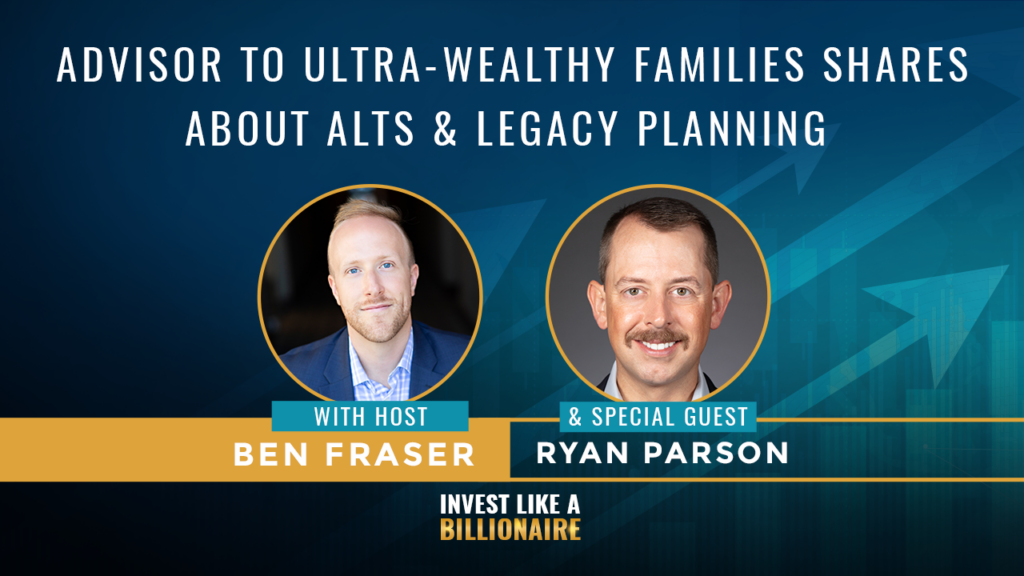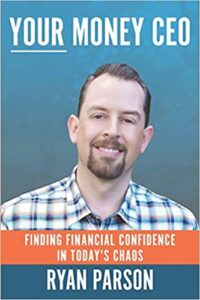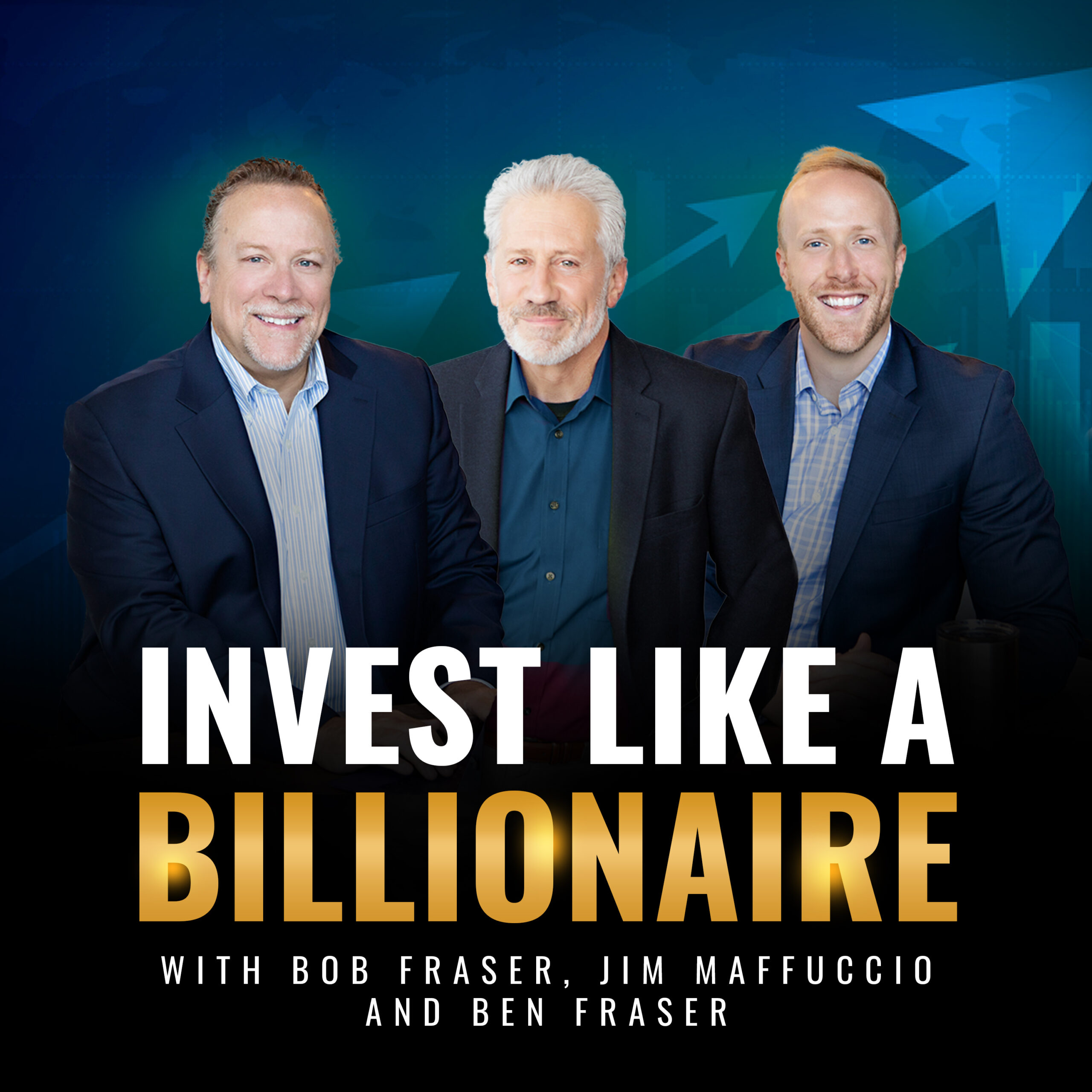
A financial advisor for HNWs, Ryan Parson looks at not just stocks and bonds but also private equity and other alternatives. Parson spent years in the financial education space and went deep into alternatives. While typical Ultra HNWs have upwards of 50% of their portfolios in alternatives, the average investor has about 5% allocated to private alts. Tune in to hear Ryan share about how he approaches financial advising and legacy planning through the lens of alts.
—
Watch the episode here:
Listen to the podcast here:
Advisor To Ultra-Wealthy Families Shares About Alts & Legacy Planning With Ryan Parson
We are excited about this episode. We spoke with Ryan Parson. He is a financial advisor for high-net-worth individuals and families, but he focuses on alternative investments. We’ve talked about this at our episodes, but most financial advisors and those that are in this space are not focused on the private equity markets and private alternatives.
That’s where Ryan has cut his teeth. In this episode, he talks a lot about how he approaches financial planning in a sense for these high-net-worth families, but using a lot of alternative strategies to amplify their wealth, help it be protected, grow over time, and even legacy planning. I hope you enjoy this episode. We think you’ll like it.
—
We’re joined by our guest, Ryan Parson. I’m excited to jump into his background and what he does helping high-net-worth families. For this show, we’re focusing on the alternative investment strategies and tools that the ultra-high net worth and ultra-wealthy are using and implementing those in our situations financially.
Ryan is in a unique position. He has been working with high-net-worth families for many years as an educator in this space. He has launched Sunlight Peaks Financial Partners. He is a wealth strategist now, working with these families, helping them protect their wealth and doing some pretty cool things. I’m excited to dive in.
Ryan, you have many years of experience in the financial services space, experienced teacher and speaker. You provide your members a lot of great tools with their wealth planning, access to off-market opportunities, which we’ll dive into a little bit. You wrote a book. It’s an Amazon Bestseller called Your Money CEO: Finding Financial Confidence In Today’s Chaos.
What I’m excited about is this is unique for someone operating in this private equity alternative investment space. You’re a Certified Financial Planner and a Charter Financial Consultant, so you’re registered with the SEC as a firm, but you’re doing a lot of things that maybe the traditional sector of investment advisory is not doing. Share a little about your background and give your real highlights. I would love to dive more into your story. How did you end up here? Why do you see this as being so beneficial for your clients?
Ben and Bob, thank you very much for having me here. It’s always a pleasure to share, teach and talk with strategic thinkers like the two of you are in helping your audience and investor clients understand wealth through different lenses. I know a lot of your clients that you all serve aren’t following necessarily a traditional path. They opted to take more control of their wealth in terms of how they think about their wealth, the outcomes that they want with their wealth, using alternative investments in real estate, and otherwise to help get them to where they want to be at.
I always appreciate being able to share and help others with their journey of living their best life of significance. That’s very important to me. From the normal disclaimer, we’re having a conversation, sharing thoughts and opinions. It’s not specific financial advice, tax advice or investment advice to any one person. We’re having a nice conversation about the different ways to be thinking about wealth. With that said, I appreciate being here because this path that I’ve been on with my own wealth certainly has been one of not following the traditional line of thinking and necessarily traditional investments.
We need to be able to help serve our prospective clients when we get to a point where it becomes more complex. Share on XHaving grown up in a family of real estate investors and myself doing a lot with the real estate, primarily in my own portfolio, I started to realize quite a while ago that beyond investing itself, there are a lot of other significant implications that the wealthy are looking for, whether it’s a tax strategy, how you think about your wealth and legacy and how you transfer those assets to your children or whoever that may be. Whether you’re thinking about charitable giving and magnifying your charitable gifts to the extent that’s important to you, to wealth protection and making sure your assets are not unjustly taken from you through litigation, divorce, identity theft now, or why you’re a fraud.
It’s all those new things that are part of the modern-day world that all of us as investors are faced with. For families like mine, I know client investors that you all serve because we’ve chosen to take an alternative path the way we’re growing and accumulating our wealth. We start to get to a point where we realize all these other implications, tax charity, and wealth protection start to become a bigger element that creates more complexity in our lives than maybe when we started off in alternatives and real estate that we didn’t fully contemplate and appreciate. You get there and achieve the level of success that you do.
That’s certainly what I realized as well is that I needed more help even with my own wealth in all of those areas. Quite frankly, it wasn’t out there to find other consummate professionals and strategic advisors, those that I could trust that had that specialized knowledge in all of these areas. We need to be able to help serve our prospective clients when we get to a point where it becomes more complex. You need and desire more of that help on your team. That’s what our clients and I realized. Our clients will always determine where we go and hence where we are now to bring those.
One of the interesting thing that set you apart is your background working for an alternative sponsor. You worked for years. You were in the education space, training people how to make these investments but not as a financial advisor or registered investment advisor. You got deep into the alt space. One of our premises and themes for the show is that typical billionaires have 50% of their wealth allocated to alternatives. The typical high-net-worth accredited investor has closer to zero.
The truth is alternatives are far superior, but it’s nothing that you learned. You got a Finance degree, went to school and learned Modern Portfolio Theory. It’s all about stocks and bonds. We joke sometimes. An investor will come to us and say, “I’m going to have my financial advisor look at this alternative.” The financial advisors almost universally say, “Don’t walk away from this. Run away from this. It’s bad because it’s private.”
We want to laugh because it’s so ignorant of what the space is. I find most financial advisors are completely ignorant about this whole world of alts. They’re vastly superior in a lot of ways. In short, in a couple of ways. Your focus on alts is unique. Talk about what, in your view, are some of the cases for alts. You’re super educated in stocks and bonds, but why do you put your investors in alts?
For any successful individual, entrepreneur, or high-net-worth family, they start to realize there might be something more or different than what they want that maybe what they have been getting isn’t serving for a whole myriad of reasons. I love the name of your show, Invest Like A Billionaire, because there are a lot of lessons we can learn from the super-rich in alternatives and real estate.
Certainly, it’s one of them because the issues are the same regardless of the size of the net worth because it’s about how you’re growing and protecting it. A lot of high-net-worth families, when they make that decision on their own, I might add that they need some other type of diversification in their portfolio beyond traditional stocks, bonds, mutual funds, cash value, life insurance and annuities. Everything can have a place in different scenarios.

Back in the great financial crisis, before that, bonds used to be divergent from stocks, but we saw the correlations. Everything went to one and down at the same time. There was no safe place. The only way to get true diversification is with alts.
That’s what a lot of families decide and they come to that conclusion on their own. There needs to be some other level of diversification there. They seek out various different types of alternatives. There’s also another common theme about investors that choose to do this. I’m being very mindful to say they choose to do this on their own. It’s not about being convinced and sold. There’s got to be something rooted in your values, goals, and outcomes for your family and financial goals that lead you to this conclusion.
Another big element that a lot of families look for, especially if they’re managing their own investments, they feel like they have control over them. They can have a greater influence on the outcomes to the extent they wish to do so or they have access to the deal sponsors that they’re entrusting their capital to, unlike sending the money into their 401(k) plan or Wall Street, which seems for some families like a great big abyss.
There’s certainly a lot of reasons and they’re all very individual to each investor in each family. Those are some of the reasons that alternatives have become so popular. Frankly, the laws have changed. As you know, after the JOBS Act came into play, it opened up a lot of opportunities for accredited investors that simply didn’t have access. Deal sponsors didn’t have access to the investors and the investors didn’t have access to the deal sponsors. There has been regulatory change and technological change.
Bob, you mentioned Modern Portfolio Theory without getting into all the joy of talking about that. Modern Portfolio Theory is modern-day technology. It’s so much easier for deal sponsors and investors to find each other. The internet age and the big things that have occurred have frankly taken down the barriers of entry. As a result of that and you combine it with a generally pretty long, good running market in real estate and different types of investments as well, it has created a level of euphoria for investors that haven’t seen something bad happen yet or a market downturn.
When you look at what are ultra-high net worth families and billionaires are doing, they find themselves stress-testing their decisions and assumptions that they’ve made and going, “What if what we believe to be true is what has got us to our level of wealth? What if that’s no longer true because of this massive evolvement of market change, political change, and social change taking place in my lifetime, investing career, and my own journey of my own wealth?”
I’ve never seen this level of change in those areas, economic, political, and social like it’s happening now. That’s causing a lot of high-net-worth families to rethink the way they’ve done some or at least challenge their own thinking about doing things. Making sure that what you believe to be true and what has gotten you to where you’re at with your wealth can keep you there if you think some of these changes that are happening around us could impact the way your wealth sustains itself going forward.
What do you think are the biggest challenges that your clients are thinking about now? What are the biggest risks areas that need to be stress-tested?
Wealth isn't built and saved in a day. Investors can get lulled into a false sense of security when good economic times are happening the way they have been for so long. Share on XStress testing is a two-pronged approach. You can take an individual issue about your wealth because so many high-net-worth families, the way they created it, it’s all different. Some of them did it through their own businesses or investment portfolios. Others had inherited their wealth. The issues that exist vary widely from family to family. You might take an individual thing that might be unique to your family or you might take and stress-test everything about your wealth. Generally speaking, you identify one area that’s of most critical importance.
Now, where we’re at with everything, taxes and inflation tend to be a very big concern for many investors of all different kinds of size of net worth. We see a lot of families now starting to re-examine what they think inflation was and historically it has been if they’ve been using some of those historical numbers and go, “What if it lasts for an extended period of time with some of these inflated numbers that inflation is at now? What does that mean to the sustainability of their wealth?” That’s a big element that a lot of investors are thinking about.
One key difference in understanding the sustainability of wealth for an individual is, “Are you doing these things prior to the event occurring?” We live in a society that is very much now in the media instant gratification of, “We got to have it right here and right now.” Wealth isn’t built and saved in a day. When good economic times are happening the way they have been for so long, investors can get lulled into a false sense of security.
They stop thinking about, “What if something undesirable happens like higher inflation? What if taxes go a lot higher than what we expected because we lived in a generally lower period of time in terms of lower inflation and lower taxes?” At the end of the day, all of those are individual decisions. Every one of us has a different view on inflation and taxes of where we think it’s at and where we think it’s going.
The point of that is you may stress-test your portfolio with respect to your own assumptions and where you think it’s going and start to see the outcomes of that before it happens. When you can see potential outcomes in the lab, it will influence the decisions that you would make, maybe now going forward in some of the adjustments you would consider making to your portfolio. It’s beyond investments. When you think of tax, cashflows, legacy planning, and charitable giving, it impacts all of those issues.
Both those topics that you mentioned are potential challenges of inflation. Increased taxes is an acute thing that a lot of investors are feeling and concerned about. It’s an individual-level impact on how you evaluate it. Where do you see a general market sense? What’s your opinion? Where do you see inflation going? How does that impact someone’s view of where they invest? What types of investments are going to be good? You don’t want to stay too long and get hit by the end of a cycle, but you also don’t want to be in cash for too long and miss a potential run-out while it’s still going.
One of you mentioned things tend to revert back to a mean over time. When you have these periods of high, low, or whatever it is you’re comparing that to, it generally settles back in and that settling may shift one side or the other a little bit. My crystal ball broke a long time ago. I’m trying to predict the future is nothing that is a strong strategy to try to do. The reality of it is when you got buffers built into your strategic plan to deal with and assume from a long-term perspective. There are going to be times where inflation is higher. There are going to be times throughout your lifetime where taxes are higher.
The reality of it is that much we do generally know. We never know when it is or to what extent that it is, but if you’ve contemplated that into your cashflow projections and scenarios already, it happens, such as what we might be experiencing now. It doesn’t have to be a game-changer. It’s a game-changer for those that didn’t plan for it and didn’t already assume it, it’s not so much of a game-changer for those that had already started thinking through some of those what-ifs.

At the time, big changes start to occur and trying to make immediate maneuvers, especially doing alternative investment portfolio or real estate portfolio because of its general lack of liquidity, can be harder to maneuver in a shorter period of time. Those are some of the considerations that you need to make and contemplate ahead of time, which influences maybe the different types of deals you would do in time.
I’m playing out that train of thought if there is higher inflation if that’s the assumption and not that you’re saying that it is or not. Specifically, as it relates to real estate, for example, because you’re a real estate investor yourself and that’s the space we’re in. When I think about inflation, it generally can be a good thing if you’re on the right side of the real estate equation. A lot of that can be passed through the form of higher rents if it’s some kind of residential property.
The issue also comes with interest rates. If we have too high of inflation for too long, the Federal Reserve has indicated they will raise interest rates to slow that down. That can impact cap rates, which can hurt values. There are a lot of changes happening quickly. There’s a lot of turbulence here and you want to be more cautious. You’re focused on the protection side of things with your clients.
How does that framework impact how you evaluate a potential deal? Are you focused more on, “I’m not going to go on a deal that’s banking on a high level of appreciation in this particular market because that’s an unknown? I want more cashflow right now?” How does that in the practical decision-making process of evaluating opportunities, specifically in real estate, can you do a lot there?
The first thing, it starts for us anyway is understanding, “What is it that the outcome that an investor wants? What are they doing? Why do they invest? What is the outcome that they’re looking for? When do they need certain different types of outcomes to come to pass reasonably?” Realizing that every one of us is very different in terms of our investment comfort levels, investment experience, tolerances for different things, raising or lowering interest rates, all of us have a different viewpoint and feeling on that.
Depending on what you’re trying to do with something like that, taking a real estate type of a deal and appreciation, which can be a pretty big wildcard in a future unknown depending on where a market cycle is at, what the deal is, and what the demand for deals are going forward in terms of being able to sell or create the liquidity from a particular real estate project. Generally speaking, everything, when it comes to making some of these decisions, tends to come back to, “What are the cashflow and the need for liquidity?”
If you have plenty of cashflow from whatever source, you might have it coming from your active income, investment portfolio, or whatever that is made up of, you might say, “I don’t need any more income right now, so I want to focus on more growth types of real estate deals that are putting the income and the liquidity events some time into the future. I’m willing to take that risk of potentially a higher rate of return because of that lack of liquidity and cashflow now.”
Those are some of the examples that a lot of high-net-worth families are contemplating now of trying to understand that and balance all of these competing market conditions and the changing regulatory environment, whether it’s around IRAs, consumers, real estate, and what can be done during a pandemic or not done in those types of things.
When you look at super high net-worth families or billionaire families, they want the best people on their teams. They're not going to settle for good enough. Share on XThese are all new contemplations for investors to be considering, but it still usually falls back on, “What are your core values? What are the goals that you’re wanting to accomplish with your wealth?” Cashflow liquidity and timing so that you can be reasonably assured you have the cash when you need it, whether it comes in some form of a regular coupon payment, monthly, quarterly, or something like that, or it comes in the future when a project is sold.
Another big concern with investors now is the potential increase in taxes. That’s targeting the higher-net worths and the higher-income earners. You don’t have to give the specifics because I know it’s an individual conversation. Where are you seeing the best places to be prepared for that? What are the conversations you’re having now with investors of making changes preemptively to not get caught with a huge tax bill that you weren’t expecting?
There are several different big things that we see a lot of families working on now. One of those, Ben, when you talk about tax, has to do with the Estate Tax Laws. For a lot of high-net-worth families that you all serve in your businesses, this estate planning issue has become a much greater issue and anticipated by a lot of people to become an even bigger issue as Congress potentially makes some changes to different things.
The taxes on an estate can be substantial in a lot of cases. They’re utilizing and starting to take a closer look at that, especially as accredited investors and higher-net worth families, start to fully appreciate everything that goes into a taxable estate beyond maybe some of the investments that they’ve made in their portfolio, values of their businesses and different things that can have tremendous implications here.
They’re starting to look at their estate and legacy plans and starting to be able to revisit, “What is the purpose of the wealth? Who do we want to have inherited the wealth? Is it time to start maybe rethinking how we can utilize our businesses differently to help deal with some of the tax implications? How do we need to start to integrate maybe our kids or grandkids into our family values to start thinking about some of those things?”
Most people, if given the opportunity, would want somebody to inherit their wealth and not let Uncle Sam take the vast majority of it through the tax code. How do you legally and thoughtfully work your way through that? There are a lot of strategic ways to do that, including how you think about your charitable giving plans.
There are a lot of things out there that a lot of accredited investors haven’t been exposed to yet of how you can legally mitigate taxes, both at an estate level and even an income tax level that is then commensurate with the values and what you’re trying to accomplish. We’re seeing a lot of that now. A renewed look at what a charitable-giving plan might be and what a multigenerational gifting plan could potentially look like to help mitigate the long-term impacts of taxes, both as we know them to be now and inevitably will be changing into the future.
I love that you look at it holistically. A lot of folks are looking at the investment opportunities, but you’re looking at a holistic way of, “How do we protect the wealth? How do you transfer wealth between generations?” I’m not doing what you’re doing and having these conversations with clients but I would imagine that it’s probably an area where a lot of investors need to beef up in their thinking and putting together these estates and thinking through all the implications there. Talk a bit more about that when you’re meeting with a new family or client. What do you see are the biggest areas of gaps in their financial plan that they’re not thinking about and no one is talking about?

I appreciate you bringing that up, Ben. When you think through the last decade or a little bit longer than that now, we’ve been in this space where a lot of new wealth has been created. A lot of new accredited investors have come to the scene. When you decide something newer, especially if you decide that I want to start being a real estate investor or whatever that looks like for you, sometimes we have a little bit of a shiny object syndrome. We see something cool. It’s like, “I want to go do that.”
We hear a cool technique somewhere. We read it. We hear it on the news. It comes into our being however it comes into our being and we go, “I got to go do that.” Therefore, a lot of planning happens very haphazardly or it has been piecemealed together. What we try to focus on with our existing clients and with any new family that we might be looking at and then seeing if we can make a significant impact on their lives is starting off with a total client profile and understanding all of these elements are important to them.
We spend a pretty extreme amount of time now with a new family before we would even consider making a decision if we can bring them on and truly make a significant difference in their lives. That helps in understanding those different areas of priority about things that we’ve talked about, wealth protection, tax strategy, cashflow needs and liquidity needs.
When you start to take a comprehensive approach and not just think about your wealth from an investment standpoint, whatever you think of financial planning or wealth management might be and talking comprehensively thinking about your wealth, that starts to then influence your investment decisions as opposed to having investment decisions influence your greater values and goals.
When you start to think about it in that mindset, it can make investing easier because it’s more rooted in what is most important and valuable to you in a way that you architect as opposed to the shiny object syndrome, which I certainly am guilty of myself and have been. If you see something cool, it’s like, “I want to do that.”
The question you have to be disciplined to ask yourself is, “That might be a cool strategy or a cool deal to do, but is it cool for me?” When you’ve got more of those parameters in place around your wealth that encompasses all those things that are important to you, it becomes a lot easier to stay disciplined and therefore increases the probability dramatically of you obtaining all that’s truly important to you.
It’s a top-down approach versus a bottom-up approach where you’re looking at, “What are your goals? What are you trying to accomplish for your family? What is important to you? What are your values?” Using that as a filter all the way at the bottom, which is the investment allocation, the tax strategies and those kinds of things in it. I would imagine, in a lot of ways, it helps create an easier filter because I know a lot of investors that are getting into this private equity space maybe feel overwhelmed.
We got into the space of real estate or alternatives because we made a conscious decision to do that. We realized we needed something else. Share on XOne of the biggest challenges we find with investors is, “I don’t know how to do due diligence. I don’t know how to find these deals. I don’t know which ones are going to fit best for what I need.” A lot of times, the challenge is they don’t even understand fully what is going on in these opportunities. It helps create that filter of, “I know what I’m going after and what my primary needs are.”
As you’re saying, if you have a client that they’re fine on cashflow and want to work more on maybe tax savings, legacy planning, and long-term growth, that’s a very different set of investments that you’re going to look at if you’re focused more on current income and current cashflow. I love that because it is something that is important to look at from that approach.
I’m glad you brought that up. You said that well, Ben. One of the things that we’ve seen and I’ve seen it. I’ve experienced it with my own wealth and a lot of other successful families and investors that I’ve known over the years. We got into the space of real estate or alternatives because we made a conscious decision to do that. We realized we needed something else. We may not have known all the reasons. We knew maybe a traditional or conventional path however you want to describe it, wasn’t going to get the job done for whatever reasons that it wasn’t going to get the job done.
As a result of that, a lot of us became what I call do-it-yourself investors. We’ve learned what we’ve learned. We tried to go to seminars, read more and find the guys like you that we’re in this space, “What do you learn? What does this deal look like? What does that mean? What are all of these different things, unit A, unit B, coupon payments, IRR?” It’s all those things that we love talking about in the world of alternative investments.
We had to become do-it-yourself because there was no other real efficient mechanism to do it. There’s nothing wrong with that being able to take that approach. We get to a point where we all have our natural limitations and desires, where we’ve learned what we can learn and we’re not comfortable taking the next step for whatever reason. We’ve associated with who we’ve associated and we realized, “We need some more people with different types of specialized knowledge in our worlds.”
It has become now how you’re being very true and honest with yourself, “What parts of your wealth do you do well with? What parts of your wealth do you need to outsource?” Those components will change over time. That’s a big reason and motivation for me why I’ve created the Virtual Family Office. It’s to allow and help other high-net-worth families that have come to the realization and conclusion, “My life has a little bit more complexity than what I want to keep managing on my own. There’s a lot of it I still want to manage and I’m happy to manage, but I’ve crossed a little bit of a divide that we need more help.”
All of these areas that you have brought up and mentioned are examples of it all of what it might be that you start to realize, “What don’t I know?” You’ve gotten to a point where this becomes a big delineator about, “When due is good enough, good enough, but I still want the best?” When you look at superhigh-net-worth families or billionaire families, they want the best people on their teams. They’re not going to settle for good enough.
Quite frankly, I’m a firm believer and I’m on a mission here to help the high-net-worth families that we serve that are big to become accredited because of the market. How do you keep it and bring those tools and that type of support in a virtual family office structure, so you’ve got access to the line of thinking the tools, just like billionaire families in how they run their full-time family office with, but bringing these tools to the high-net-worth families and successful individuals that we serve in a Virtual Family Office format?

That’s going to be a big element in the future if you’re truly serious about preserving your wealth. However you’ve gone about accumulating it, you’re going to have to adapt some pretty significant structures that are very simple and elegant, but you’re going to have to do them. With all of these changes and forces that are after high-net-worth families now, your likelihood of keeping your wealth diminishes dramatically unless you take some dramatic actions to help deal with these forces around us that can be challenging to deal with.
People probably heard the term family office. The natural thought is that’s for the very ultra-wealthy families of $100 million-plus. Even with the evolution of the private equity markets with the JOBS Act, where there’s more access being given, there are also more resources that are being available to these families in the $2 million to $10 million net worth.
A couple of decades ago, good luck trying to find these other resources and strategies unless you knew a lot of people and had the right network, but now, you can bring a lot of those strategies that the ultra-high net worth families are using to protect, grow their wealth and bring it at a different scale to a whole new subset of investors. Ryan, what’s the best way to get ahold of you if someone is interested in having a more strategic conversation about their wealth and they’re at that stage where they want to be thinking about multigenerational planning? What’s the best way for them to reach you?
We love talking and having a personal one-on-one conversation, a quick reach-out on our website, SunlightPeaks.com. You will easily find us. It’s simple, elegant, and streamlined. Start with our website first and we can go from there.
Thanks so much for coming on and sharing some of your thoughts. It’s helpful. I love a lot of things you said. Guys, if this is interesting to you, reach out to Ryan and his team and have a conversation. I appreciate you coming on.
Ben and Bob, it’s a pleasure. I appreciate you all doing this because I know putting these together, the production of all of it, and getting it out there is not an easy task. It’s important what you’re doing to help educate and show investors as part of the new realities going on in the marketplace. I appreciate you guys what you’re doing with it and including us on your quest to make the world better through your visions as well.
Thanks, Ryan.
Important Links:
About Ryan Parson








